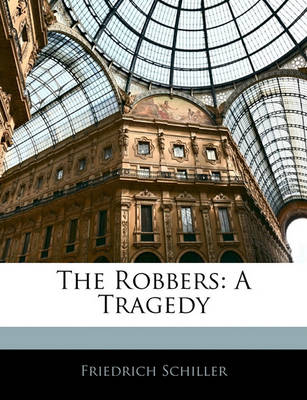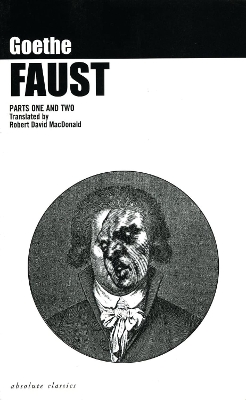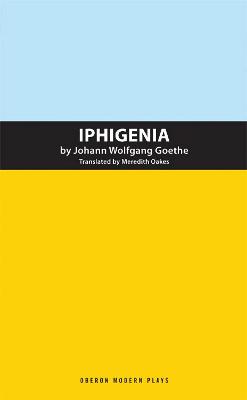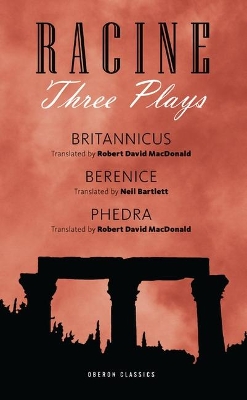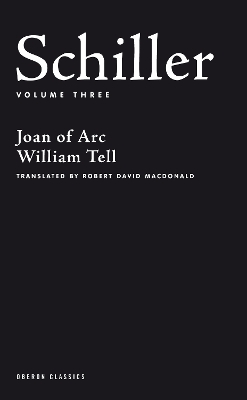Oberon Classics
5 total works
The Robbers (1781) was written in great secrecy under the prison-like conditions of Wurttenberg's Karlsschule: Karl, the son of a count, is disinherited through the machinations of his brother Franz, and, turning his back on a social order he finds unjust and corrupt, becomes the leader of a band of robbers.
Faust: Parts One and Two
by Johann Wolfgang von Goethe and Robert David MacDonald
Published 1 July 1982
The power and magic of the Faust story, the man who, in a pact with the Devil, trades his soul in return for a period of total knowledge and absolute power, is one of the most potent of all European myths. Johann Wolfgang von Goethe (1749-1832) worked on this poetic drama in bursts from his twenties until the end of his life. He reshaped the perpetually fascinating legend, probing the nature and process of human striving and questioning the assumed divisins between the forces of good and evil. His Faust has become a landmark in world literature.
Robert David MacDonald's translation of Faust, used in acclaimed productions in Scotland (Glasgow Citizens') and England (Lyric Hammersmith), offers access to the play in the English language for readers and playgoers alike and opens up the extraordinary range and pace of Goethe's language, rhythms, imagery and ideas, without sacrificing any of the play's humour. The Open University has adopted the translation as a set book for the course entitled 'From Enlightenment to Romanticism'.
Robert David MacDonald's translation of Faust, used in acclaimed productions in Scotland (Glasgow Citizens') and England (Lyric Hammersmith), offers access to the play in the English language for readers and playgoers alike and opens up the extraordinary range and pace of Goethe's language, rhythms, imagery and ideas, without sacrificing any of the play's humour. The Open University has adopted the translation as a set book for the course entitled 'From Enlightenment to Romanticism'.
The Greek fleet bound for Troy is becalmed. For the sake of a wind, Agamemnon, leader of the Greek forces, is persuaded that he must sacrifice his daughter Iphigenia. But as the priest raises his knife to slit the child’s throat, the goddess Diana spirits her away. Clytemnestra, Agamemnon’s wife, believing her beloved daughter to be dead, slays her husband in revenge on hisreturn from the Trojan wars. Their son, Orestes, avenges his father’s death by killing his mother. Now, years later, as Iphigenia, a prisoner of the temple of Diana, looks across the sea to Greece, longing to return home, her brother Orestes arrives...
Racine: Three Plays
by Jean Racine, Neil Bartlett, and Robert David MacDonald
Published 19 November 2010
This work contains three masterpieces by one of the most important French dramatists of the 17th century. "Berenice" is a tale of love and personal happiness in conflict with public duty. "Phedre" concerns a princess with an overwhelming infatuation with her stepson. "Britannicus" lays bare the relationships at the heart of power as a world slips into moral chaos. These new versions by two of the country's most distinguished director-translators prove that Racine is far from untranslatable; they offer blisteringly effective poetry, urgent plotting and powerhouse roles for both actors and actresses.
Includes the plays Joan of Arc and William Tell
Two plays about historical characters whose fame has also raised them to the level of myth. In Joan of Arc (1801), Schiller allows his heroine a more glorious death than her historical execution at the stake, and imbues her with more passion, and compassion, than is usually ascribed to the actual Joan.
In William Tell (1805), often regarded as his greatest play, Schiller creates a vivid sense of time and place - medieval Switzerland - and in his troubled hero, the accidental revolutionary Tell, create a complex and fascinating figure.
One of the great figures in German literature, Friedrich Schiller (1759-1805) was in some ways the most significant playwright of his day, numbering among his devotees Coleridge and Carlyle. His plays are known for their originality of form, vivid stage imagery and powerful language, faithfully rendered in Robert David MacDonald's acclaimed translations
Two plays about historical characters whose fame has also raised them to the level of myth. In Joan of Arc (1801), Schiller allows his heroine a more glorious death than her historical execution at the stake, and imbues her with more passion, and compassion, than is usually ascribed to the actual Joan.
In William Tell (1805), often regarded as his greatest play, Schiller creates a vivid sense of time and place - medieval Switzerland - and in his troubled hero, the accidental revolutionary Tell, create a complex and fascinating figure.
One of the great figures in German literature, Friedrich Schiller (1759-1805) was in some ways the most significant playwright of his day, numbering among his devotees Coleridge and Carlyle. His plays are known for their originality of form, vivid stage imagery and powerful language, faithfully rendered in Robert David MacDonald's acclaimed translations
